 You may or may not remember a very interesting interview with actress Jennifer Aniston that was published back in 2008, in which the actress claimed to be eco-friendly because she limited her showers to three minutes and during that time also brushed her teeth. That’s right. She brushes her teeth in the shower. For some of us, that admission came as a total shock - not because an actress would want to conserve water, but that someone would actually brush their teeth while they were showering. But for others, this admission was not remotely surprising, as this is common practice for some people.here aren’t any data on just how many people brush while showering, but there are enough of them out there that it has become somewhat of a subject of debate between dentists and patients over the years.
You may or may not remember a very interesting interview with actress Jennifer Aniston that was published back in 2008, in which the actress claimed to be eco-friendly because she limited her showers to three minutes and during that time also brushed her teeth. That’s right. She brushes her teeth in the shower. For some of us, that admission came as a total shock - not because an actress would want to conserve water, but that someone would actually brush their teeth while they were showering. But for others, this admission was not remotely surprising, as this is common practice for some people.here aren’t any data on just how many people brush while showering, but there are enough of them out there that it has become somewhat of a subject of debate between dentists and patients over the years.
When it comes to brushing your teeth in the shower, there are a few questions we need to ask ourselves when trying to determine if this is a good idea or not. First of all, why are you brushing your teeth in the shower? If you are doing so like Aniston to save water, this is not a good idea. Why? Because if you are in the shower, you are using a lot more water than you would if you brushed at the sink. Unless you're doing other tasks - like shampooing or scrubbing your back - at the same time, you're not really doing much good. And if you are standing directly under the water, you may be getting some of it in your mouth as you brush, causing your toothpaste to dilute or run down your face.
Bottom line: If you want to save water, take your shower as quickly as you can, and brush your teeth before or after with the faucet off while you brush.
Another reason people brush in the shower is to save time, or to multi-task. This is a good idea in theory, but it can have its drawbacks, too. First of all, where are you storing your toothbrush when you’re done? Is it staying in the shower? Do you share the shower with another person? If you have a hook in the shower for your brush, can you be 100 percent sure it's not getting sprayed with soap or oils from someone else when you’re not using it?
Furthermore, how clean is your shower? Do you regularly scrub the tiles for mold, mildew, hard water scale and soap scum? Leaving your brush in a space that is susceptible to any of those contaminants could mean you’re getting them in your toothbrush, too, and by proxy brushing that onto your teeth. Showers can be a hotbed of all kinds of nasty bacteria - not exactly something you want to be putting into your mouth. For this reason, if you truly must brush your teeth in the shower, it is highly recommended that your toothbrush be stored outside of the shower when not in use.
Another question you have to ask yourself about shower brushing is: Where does all that foam go when you’re done brushing? Do you spit out your toothpaste onto the floor of your shower? Do you step out of the shower to spit it into the sink? Many people would argue that the idea of stepping in their own used toothpaste during the shower is not a pleasant one.
Finally, there’s one more reason that brushing in the shower isn’t the best idea. Accuracy. Yes, you’ve probably been brushing your teeth for longer than you’ve been showering, so chances are you know what you’re doing by now. But how can you be sure you’ve gotten all the plaque and debris from your teeth if you’re not brushing in front of a mirror? It makes more sense to brush at your sink, so you can see exactly what you’re doing and make sure you’re not missing any particles that are on your teeth. Furthermore, you still need to floss, which is very difficult to do without a mirror. If you’re going to floss in the mirror, shouldn’t you just brush there too?
Ultimately, it's up to you when and where you brush your teeth, but brushing in the shower is definitely not recommended. The time it may save is negligible, and the water it may save is debatable. If you’re short on time or worried about your water consumption, set your alarm a few minutes earlier in the morning so you don’t have to rush, and make sure you and your family are shutting the faucet off while they are brushing in the sink. These little changes can make as big of, if not a bigger, impact than shower brushing, and they’re a lot better for you, too.
 If you’re one of the 10 million Americans suffering from temporomandibular joint disorder, or TMD for short, you’re probably already aware of the many different types of pain TMD causes. In addition to the jaw pain that is synonymous with TMD (after all, the temporomandibular joint is in the jaw), you may experience pain in other areas of the head and body. But for the millions of estimated undiagnosed TMD patients, their pain may not be an obvious clue. That’s because as TMD sufferers are probably already aware, every case of TMD is different, and the pain isn’t always in the jaw.
If you’re one of the 10 million Americans suffering from temporomandibular joint disorder, or TMD for short, you’re probably already aware of the many different types of pain TMD causes. In addition to the jaw pain that is synonymous with TMD (after all, the temporomandibular joint is in the jaw), you may experience pain in other areas of the head and body. But for the millions of estimated undiagnosed TMD patients, their pain may not be an obvious clue. That’s because as TMD sufferers are probably already aware, every case of TMD is different, and the pain isn’t always in the jaw.


 When the New York City Board of Health recently announced a proposal to require preschool teachers to brush students’ teeth after meals and snacks, many people thought it was a brilliant idea - but others were left scratching their heads. How can we ask a teacher to provide this type of personal care to a student, especially when many teachers are already stretched for time, space and resources? But is this a good reason to not require this program? Here are the reasons why this proposal could - and should - work.
When the New York City Board of Health recently announced a proposal to require preschool teachers to brush students’ teeth after meals and snacks, many people thought it was a brilliant idea - but others were left scratching their heads. How can we ask a teacher to provide this type of personal care to a student, especially when many teachers are already stretched for time, space and resources? But is this a good reason to not require this program? Here are the reasons why this proposal could - and should - work.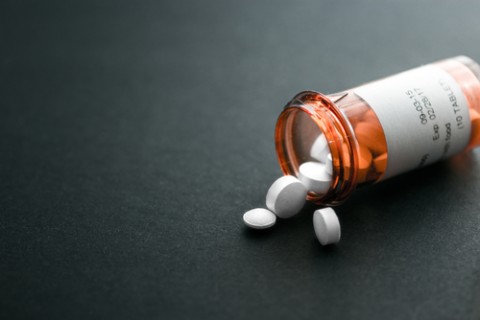 With growing cries from as high up as the White House for America to tackle the growing opioid addiction crisis, the American Dental Association announced it will now take a hardline approach to dentists prescribing the drugs. ADA President Dr. Joseph Crowley has asked that all 161,000 member-dentists "eliminate opioids ... if at all possible." While the move is a noble attempt to help reduce addiction and cull the sale of opioids from the secondary market, many are left wondering what it could mean for the comfort of patients undergoing painful procedures like pulled teeth, dental implants and root canals.
With growing cries from as high up as the White House for America to tackle the growing opioid addiction crisis, the American Dental Association announced it will now take a hardline approach to dentists prescribing the drugs. ADA President Dr. Joseph Crowley has asked that all 161,000 member-dentists "eliminate opioids ... if at all possible." While the move is a noble attempt to help reduce addiction and cull the sale of opioids from the secondary market, many are left wondering what it could mean for the comfort of patients undergoing painful procedures like pulled teeth, dental implants and root canals. Even if you haven’t seen the videos yourself, you’ve probably heard about those trendy YouTube "challenge" videos that surge in popularity every few months. It started a few years ago with the ice bucket challenge, a noble campaign to help raise money and awareness for Amyotrophic Lateral Sclerosis, or ALS. The videos were fun and funny, and they did an excellent job achieving their goal, raising over $115 million for ALS research. Since then, many other video challenges have been issued, but most have not been for raising awareness - rather, they have been issued for internet fame. And therein lies the danger. When impressionable kids see a way to get quick fame and popularity, it can be a dangerous combination.
Even if you haven’t seen the videos yourself, you’ve probably heard about those trendy YouTube "challenge" videos that surge in popularity every few months. It started a few years ago with the ice bucket challenge, a noble campaign to help raise money and awareness for Amyotrophic Lateral Sclerosis, or ALS. The videos were fun and funny, and they did an excellent job achieving their goal, raising over $115 million for ALS research. Since then, many other video challenges have been issued, but most have not been for raising awareness - rather, they have been issued for internet fame. And therein lies the danger. When impressionable kids see a way to get quick fame and popularity, it can be a dangerous combination. With so many healthy dietary choices out there, most Americans have no reason to eat junk food if they can help it. But just because a food is good for you doesn’t mean it’s a good choice to eat before your dental or orthodontic appointment. If you’re wondering what to avoid before you hit the dental chair, check out this list of the top five offenders, and what makes them such a bad mix with your exam.
With so many healthy dietary choices out there, most Americans have no reason to eat junk food if they can help it. But just because a food is good for you doesn’t mean it’s a good choice to eat before your dental or orthodontic appointment. If you’re wondering what to avoid before you hit the dental chair, check out this list of the top five offenders, and what makes them such a bad mix with your exam. According to a new study by Queen Mary University in London, parents in Ireland are failing to bring their children to the dentist at appropriate times. The study found that only 30 percent of parents brought their child to the dentist when the child was suffering from dental pain, while the rest visited either general practitioners to address the pain or the pharmacy for over-the-counter pain medication.
According to a new study by Queen Mary University in London, parents in Ireland are failing to bring their children to the dentist at appropriate times. The study found that only 30 percent of parents brought their child to the dentist when the child was suffering from dental pain, while the rest visited either general practitioners to address the pain or the pharmacy for over-the-counter pain medication. You may or may not remember a very interesting interview with actress Jennifer Aniston that was published back in 2008, in which the actress claimed to be eco-friendly because she limited her showers to three minutes and during that time also brushed her teeth. That’s right. She brushes her teeth in the shower. For some of us, that admission came as a total shock - not because an actress would want to conserve water, but that someone would actually brush their teeth while they were showering. But for others, this admission was not remotely surprising, as this is common practice for some people.here aren’t any data on just how many people brush while showering, but there are enough of them out there that it has become somewhat of a subject of debate between dentists and patients over the years.
You may or may not remember a very interesting interview with actress Jennifer Aniston that was published back in 2008, in which the actress claimed to be eco-friendly because she limited her showers to three minutes and during that time also brushed her teeth. That’s right. She brushes her teeth in the shower. For some of us, that admission came as a total shock - not because an actress would want to conserve water, but that someone would actually brush their teeth while they were showering. But for others, this admission was not remotely surprising, as this is common practice for some people.here aren’t any data on just how many people brush while showering, but there are enough of them out there that it has become somewhat of a subject of debate between dentists and patients over the years.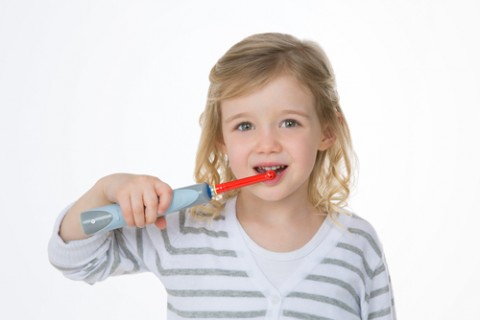 It seems like every product we use on a daily basis these days has a "smart" version either on the market or in the works. From app-enabled lawn sprinkler systems to doors you can lock from your phone, we are becoming an ever-increasing digital society. Naturally, dentistry is no exception.
It seems like every product we use on a daily basis these days has a "smart" version either on the market or in the works. From app-enabled lawn sprinkler systems to doors you can lock from your phone, we are becoming an ever-increasing digital society. Naturally, dentistry is no exception. You’d be hard pressed to find a kid who doesn't love candy. But for many parents, it’s a love they’re hesitant to indulge. That’s because with so much sugar already in our diets, the last thing most kids need is more of it. Sugar in moderation is OK, but when sugar is overdone, it can cause a whole list of chronic problems including obesity, diabetes and cavities. Some studies have even linked it to hormone imbalances, premature aging and cancer.
You’d be hard pressed to find a kid who doesn't love candy. But for many parents, it’s a love they’re hesitant to indulge. That’s because with so much sugar already in our diets, the last thing most kids need is more of it. Sugar in moderation is OK, but when sugar is overdone, it can cause a whole list of chronic problems including obesity, diabetes and cavities. Some studies have even linked it to hormone imbalances, premature aging and cancer.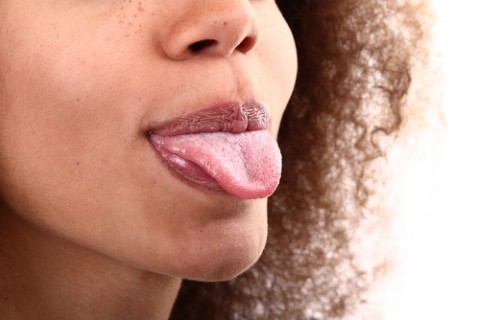 If you’ve ever had one of those painful, annoying white or red bumps on your tongue, you probably had a few questions, like "What is this?" and "How did it get here?" and, "Is it dangerous?" Well, to answer those (literally) burning questions, the bumps are probably transient lingual papillitis, and they are for the most part harmless.
If you’ve ever had one of those painful, annoying white or red bumps on your tongue, you probably had a few questions, like "What is this?" and "How did it get here?" and, "Is it dangerous?" Well, to answer those (literally) burning questions, the bumps are probably transient lingual papillitis, and they are for the most part harmless.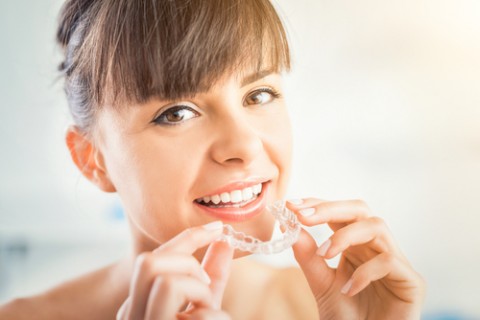 If you’ve ever had Invisalign treatment, you may have heard of IPR, short for interproximal reduction. But many people don't hear about the procedure until they're getting ready for orthodontic treatment, and it can be a little confusing to say the least.
If you’ve ever had Invisalign treatment, you may have heard of IPR, short for interproximal reduction. But many people don't hear about the procedure until they're getting ready for orthodontic treatment, and it can be a little confusing to say the least. Congratulations, you just got new braces! You can expect many great things from orthodontics: straighter teeth, a more even smile and even a better aligned bite. But what you may not be expecting is the pain that goes along with new braces. It can be hard to adjust to. Usually when you experience tooth pain, it’s focused on one or two teeth. With braces, your entire upper and lower jaw can hurt at once, and that can often be almost unbearable.
Congratulations, you just got new braces! You can expect many great things from orthodontics: straighter teeth, a more even smile and even a better aligned bite. But what you may not be expecting is the pain that goes along with new braces. It can be hard to adjust to. Usually when you experience tooth pain, it’s focused on one or two teeth. With braces, your entire upper and lower jaw can hurt at once, and that can often be almost unbearable.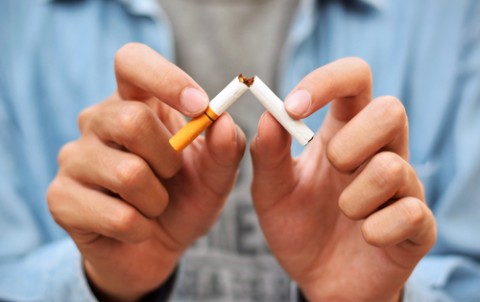 A new year means a fresh start. It’s also a wonderful time to implement new resolutions to improve your quality of life. But some resolutions are easier to achieve than others. One of the most difficult resolutions to stick with is quitting smoking. Smoking statistics are scary ones. An estimated 15 of every 100 Americans smoke cigarettes. That’s about 36.5 million people! Worse yet, an estimated 16 million Americans live with a smoking-related illness, such as lung cancer or emphysema – and these diseases are completely preventable. Smoking also prematurely ages you, gives you bad breath and stains your teeth.
A new year means a fresh start. It’s also a wonderful time to implement new resolutions to improve your quality of life. But some resolutions are easier to achieve than others. One of the most difficult resolutions to stick with is quitting smoking. Smoking statistics are scary ones. An estimated 15 of every 100 Americans smoke cigarettes. That’s about 36.5 million people! Worse yet, an estimated 16 million Americans live with a smoking-related illness, such as lung cancer or emphysema – and these diseases are completely preventable. Smoking also prematurely ages you, gives you bad breath and stains your teeth. A recent study by the American Academy of Geriatrics has found a link between the presence of gum disease, tooth loss and frailty in senior citizens. Conducted in the United Kingdom, the study of nearly 8,000 people found that more than 60 percent of citizens over the age of 65 had some form of periodontal disease, and many more were missing more than one tooth. Another common side effect experienced by respondents was dry mouth.
A recent study by the American Academy of Geriatrics has found a link between the presence of gum disease, tooth loss and frailty in senior citizens. Conducted in the United Kingdom, the study of nearly 8,000 people found that more than 60 percent of citizens over the age of 65 had some form of periodontal disease, and many more were missing more than one tooth. Another common side effect experienced by respondents was dry mouth.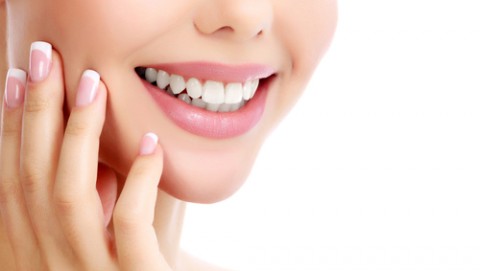 Do you suffer from frequent canker sores? Do you always seem to have dry mouth? These could be caused by many things that are no cause for alarm, but they could also be warning signs of a bigger problem: celiac disease. Celiac disease has several of what are known as "oral manifestations" – physical symptoms that occur in the mouth that may indicate the presence of celiac disease in the body. If you are experiencing any one or more of these indicators, you may have the condition.
Do you suffer from frequent canker sores? Do you always seem to have dry mouth? These could be caused by many things that are no cause for alarm, but they could also be warning signs of a bigger problem: celiac disease. Celiac disease has several of what are known as "oral manifestations" – physical symptoms that occur in the mouth that may indicate the presence of celiac disease in the body. If you are experiencing any one or more of these indicators, you may have the condition. For most people, dry mouth is a minor annoyance that can be easily fixed by having a glass of water. But what happens when water isn’t enough, and that dry mouth never really goes away? For the estimated 4 million Americans who suffer from an autoimmune disorder called Sjogren’s Syndrome, this problem can be an uncomfortable reality.
For most people, dry mouth is a minor annoyance that can be easily fixed by having a glass of water. But what happens when water isn’t enough, and that dry mouth never really goes away? For the estimated 4 million Americans who suffer from an autoimmune disorder called Sjogren’s Syndrome, this problem can be an uncomfortable reality. For the 23.1 million Americans with known cases of Type 2 diabetes, living with this often-debilitating blood glucose disease can be detrimental to overall health and well-being. Not only does Type 2 diabetes affect blood sugar and insulin production, but it can also cause damage to the heart, eyes, kidneys, feet and gums. But now, a startling report out of Harvard University has revealed that one common activity many people do to protect their gums could be increasing their risk of developing Type 2 diabetes.
For the 23.1 million Americans with known cases of Type 2 diabetes, living with this often-debilitating blood glucose disease can be detrimental to overall health and well-being. Not only does Type 2 diabetes affect blood sugar and insulin production, but it can also cause damage to the heart, eyes, kidneys, feet and gums. But now, a startling report out of Harvard University has revealed that one common activity many people do to protect their gums could be increasing their risk of developing Type 2 diabetes. In the United States, an estimated 48,000 new cases of oral cancer will be diagnosed this year, and of those cases, only about half will survive beyond the five-year mark. With oral cancer, early detection is key to survival, so it goes without saying that knowing the warning signs could truly save your life.
In the United States, an estimated 48,000 new cases of oral cancer will be diagnosed this year, and of those cases, only about half will survive beyond the five-year mark. With oral cancer, early detection is key to survival, so it goes without saying that knowing the warning signs could truly save your life. Sleep apnea is a serious condition that affects approximately 22 million people in the United States. It is categorized as the starting and stopping of breathing during sleep. Often, people with sleep apnea stop breathing for more than 10 seconds at a time, anywhere from five to 100 times an hour. Worse yet, because they are asleep, they don’t realize it's happening, making a bad situation potentially deadly.
Sleep apnea is a serious condition that affects approximately 22 million people in the United States. It is categorized as the starting and stopping of breathing during sleep. Often, people with sleep apnea stop breathing for more than 10 seconds at a time, anywhere from five to 100 times an hour. Worse yet, because they are asleep, they don’t realize it's happening, making a bad situation potentially deadly. When a 57-year-old woman from Hunan Province, China, recently sought help for her chronic sinus congestion and nosebleeds, she received quite a shock from her doctor. While there are a variety of medical problems that can cause chronic congestion, the woman’s scan revealed none of those "usual suspects" were to blame. Instead of a deviated septum or sinus infection, her scans showed a small round object blocking the nasal passage. But what that object ended up being was the biggest surprise: a tooth!
When a 57-year-old woman from Hunan Province, China, recently sought help for her chronic sinus congestion and nosebleeds, she received quite a shock from her doctor. While there are a variety of medical problems that can cause chronic congestion, the woman’s scan revealed none of those "usual suspects" were to blame. Instead of a deviated septum or sinus infection, her scans showed a small round object blocking the nasal passage. But what that object ended up being was the biggest surprise: a tooth!